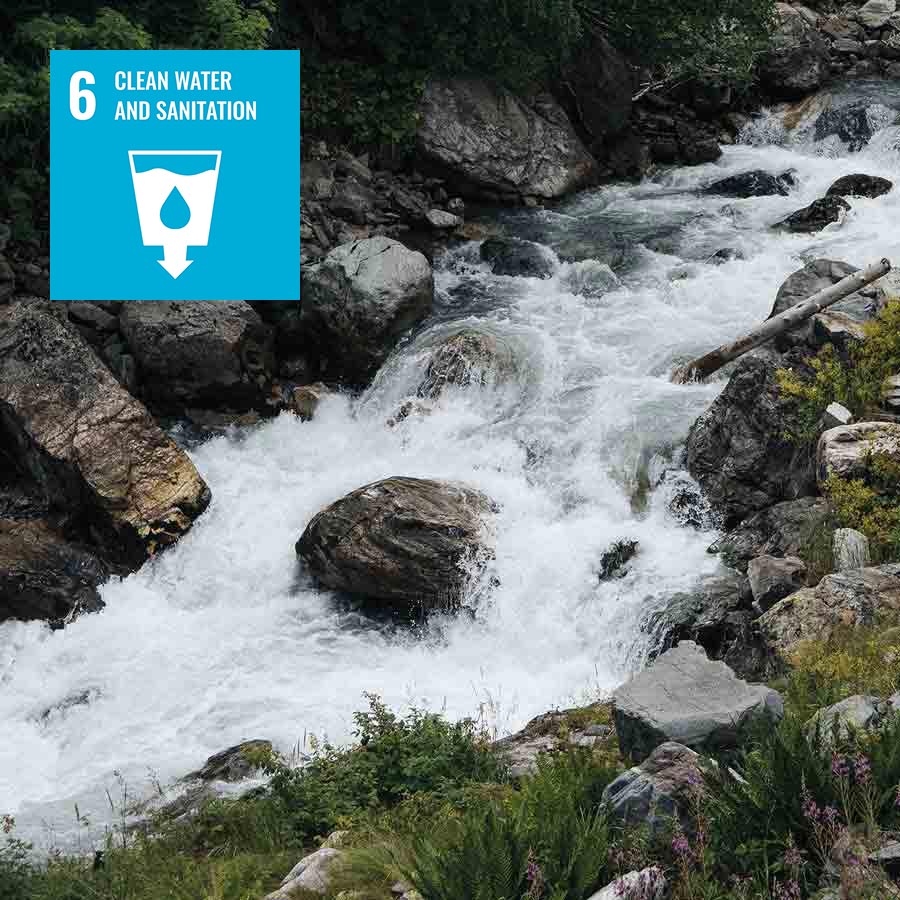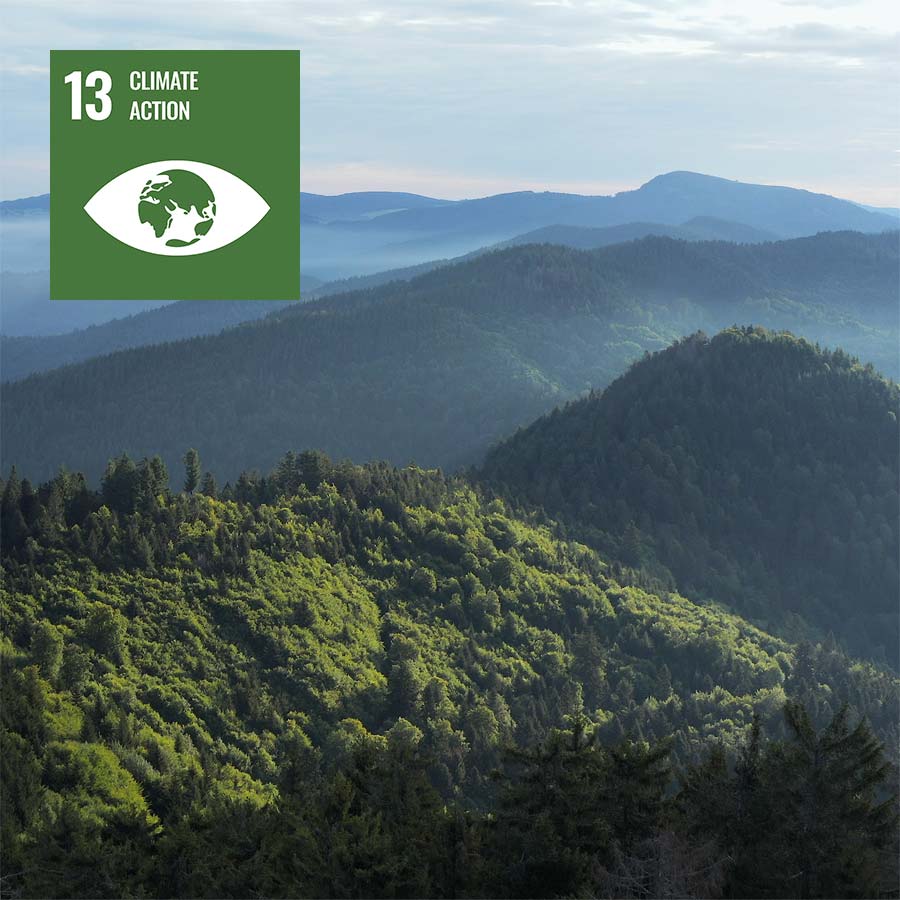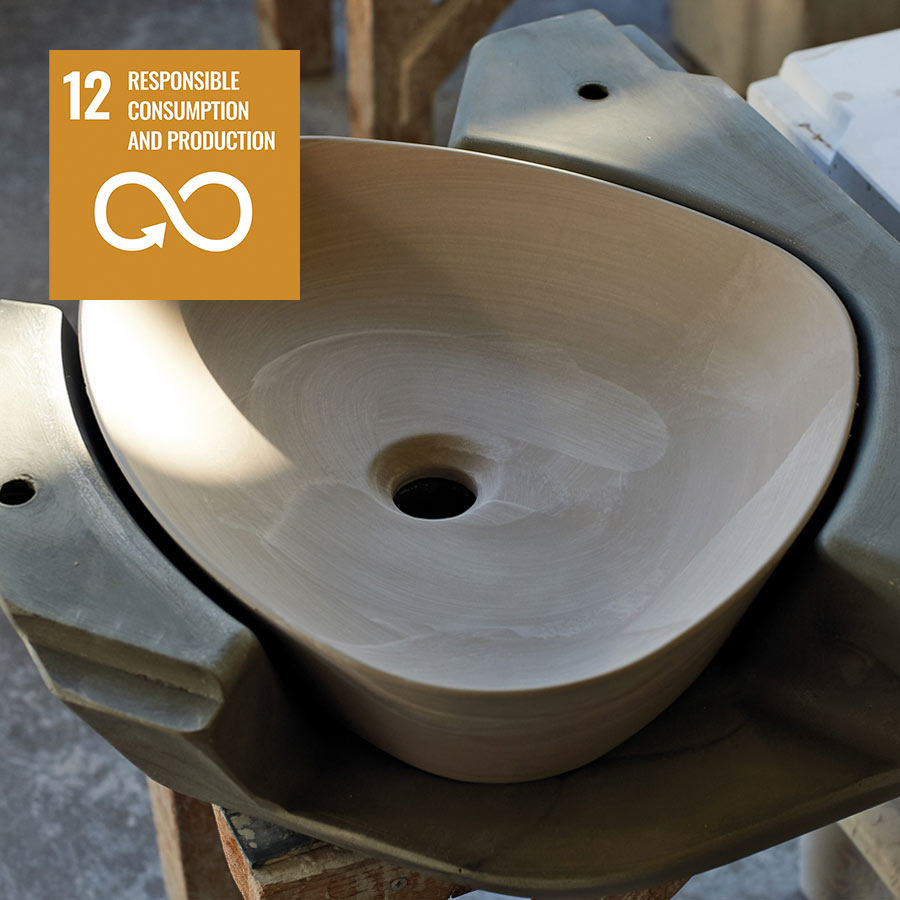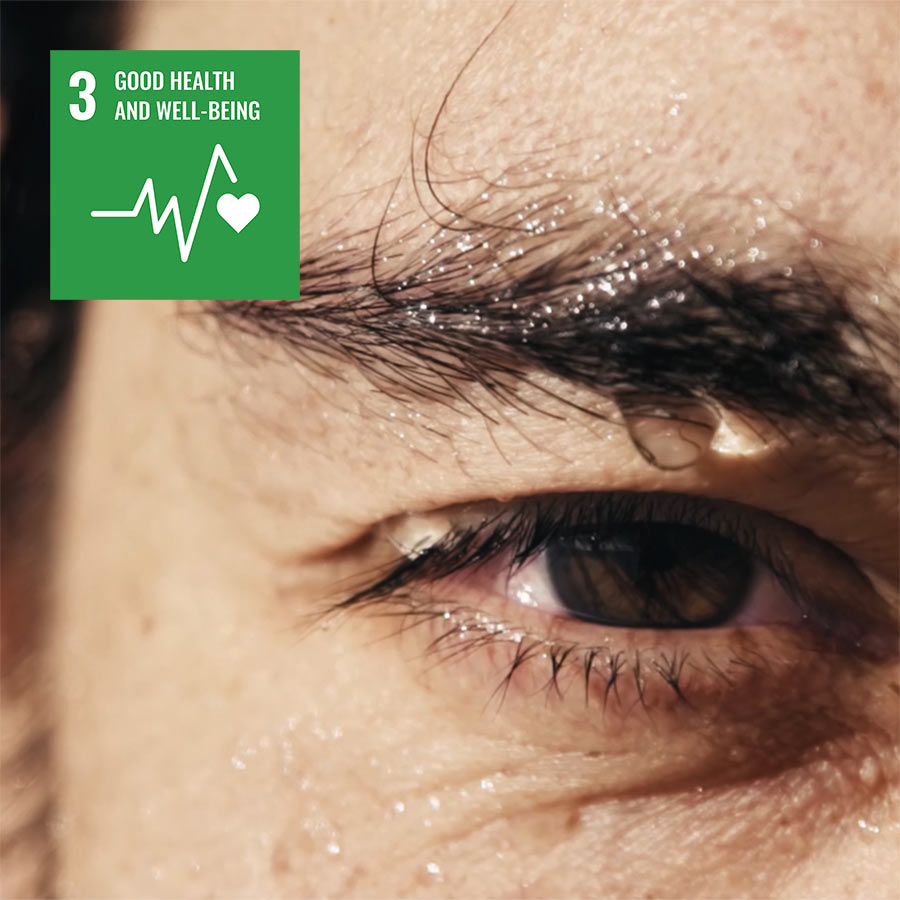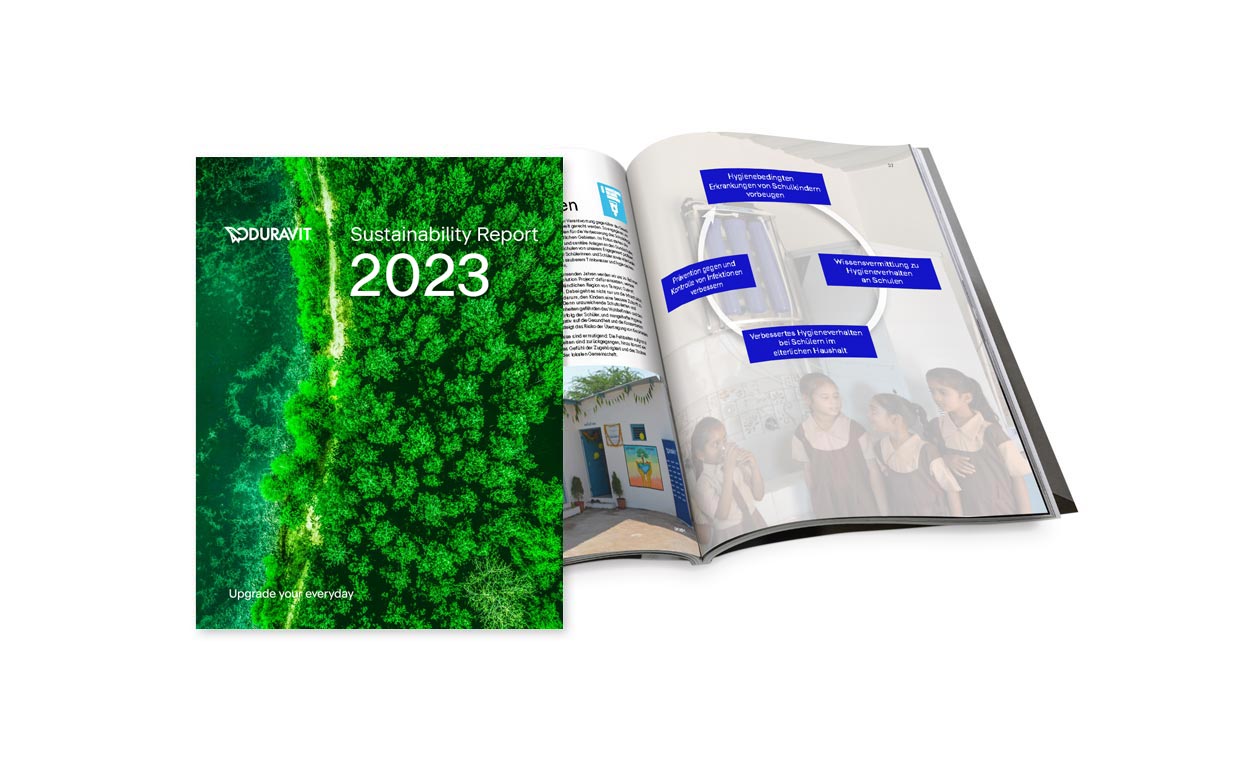
Duravit Green - Sustainability & Responsibility | Duravit

As a company with roots deep in the Black Forest region that has also become a global player, Duravit feels a special sense of obligation to the concept of sustainability: “When we talk about taking on responsibility, we’re not only thinking about our company, but above all the next generations,” said Duravit CEO Stephan Tahy. We aim to rely on carbon offsetting as little as possible. The goal is to be an exclusively climate-neutral business around the world by 2045. That is why we have embarked on a climate mission that is as ambitious as it is comprehensive.
Duravit's Sustainability Strategy
The climate mission is just one component of our overarching sustainability strategy and is based on the United Nations Sustainable Development Goals (SDGs). We constantly check the effectiveness of the measures we have initiated, and adapt, expand, and enhance them wherever expedient. All measures are assigned to four major action areas:
Sustainability Goals 2030
The ceramic material, that has proved its worth over millennia, will also have a place in a climate-neutral future. Stability, robustness, and use of purely natural materials lend itself to properties that, from the outset, go a long way towards satisfying the requirements for preserving the environment and saving resources. At the same time, we are seeking throughout the company to conserve resources, limit our use of raw materials, and reduce emissions as much as possible. By 2030, an important milestone is already to be reached for our climate mission. This includes the following sustainability goals:
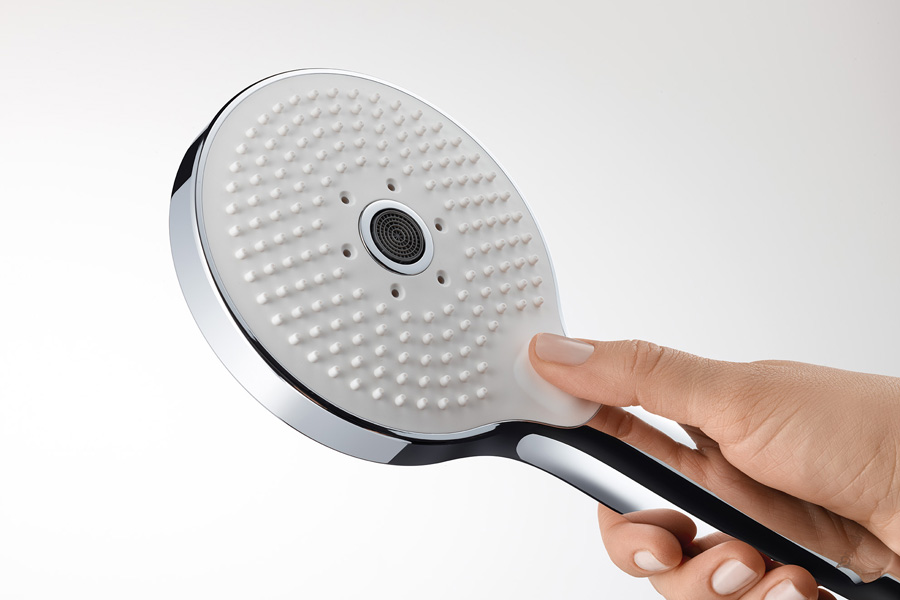
We’re increasing our proportion of products with water-saving technologies to more than 80 percent.
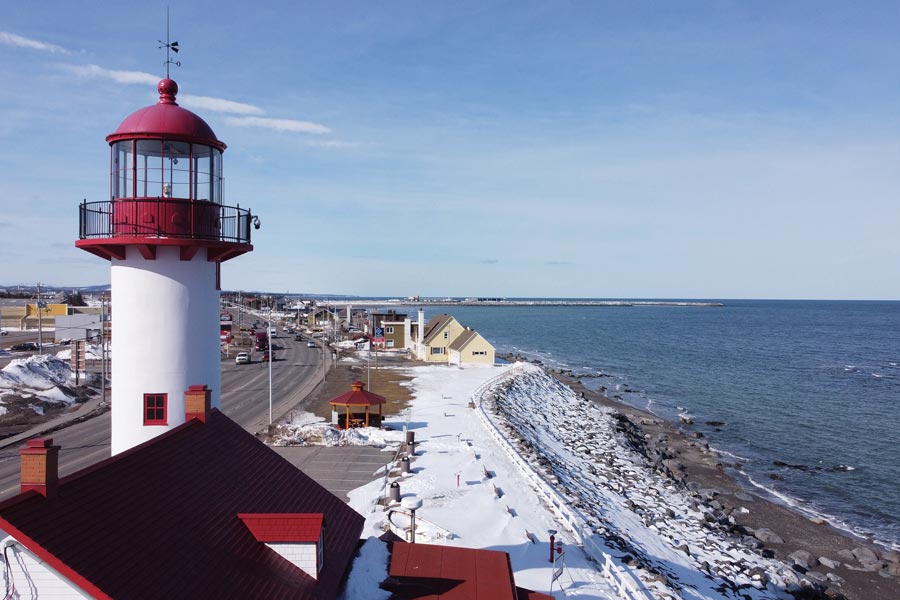
We’re reducing our global carbon emissions by 20 percent.
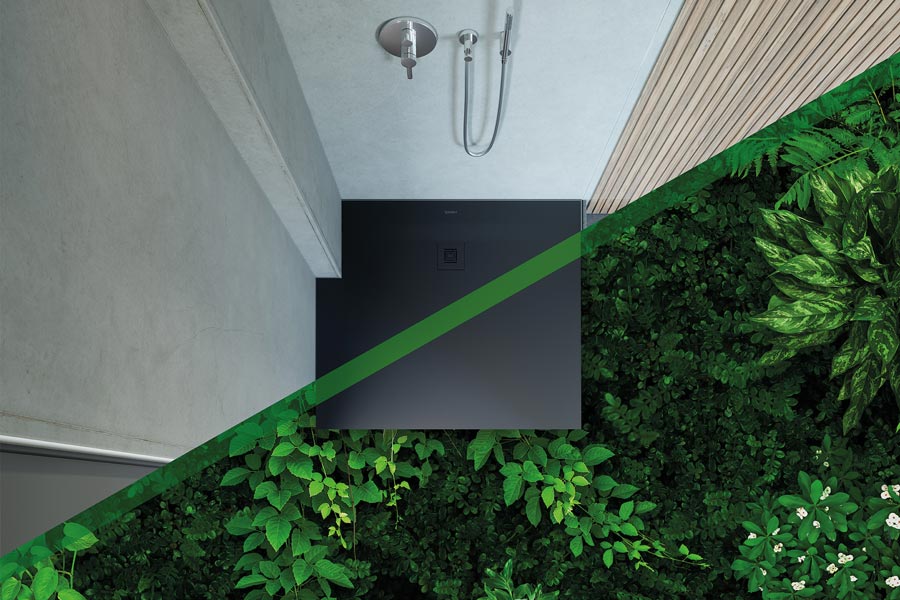
We’re increasing the proportion of recycled materials in our products to an average of 30 percent.
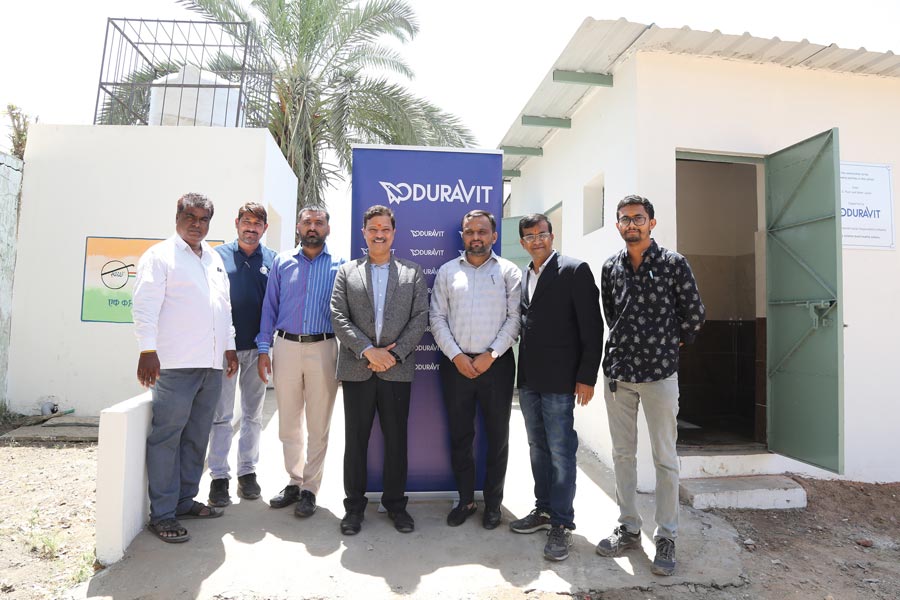
We’re investing 0.5 percent of our annual company profits in global partnerships as well as in maintaining a high level of employee satisfaction.
Sustainability Report 2023
Facts & figures and more information about our ongoing sustainability projects around the world can be found in our latest Sustainability Report.
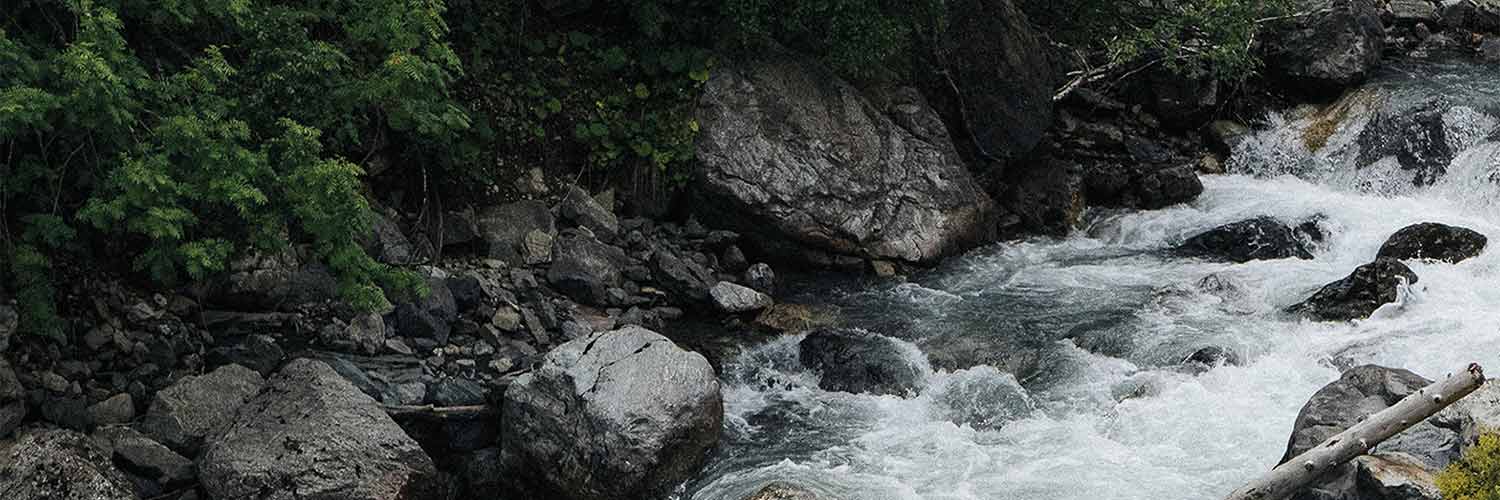
Water
Responsible Use of Water
Handling water responsibly is a key component of our strategy. This relates both to the manufacturing process itself as well as to product optimizations that help the end user to conserve this natural resource.
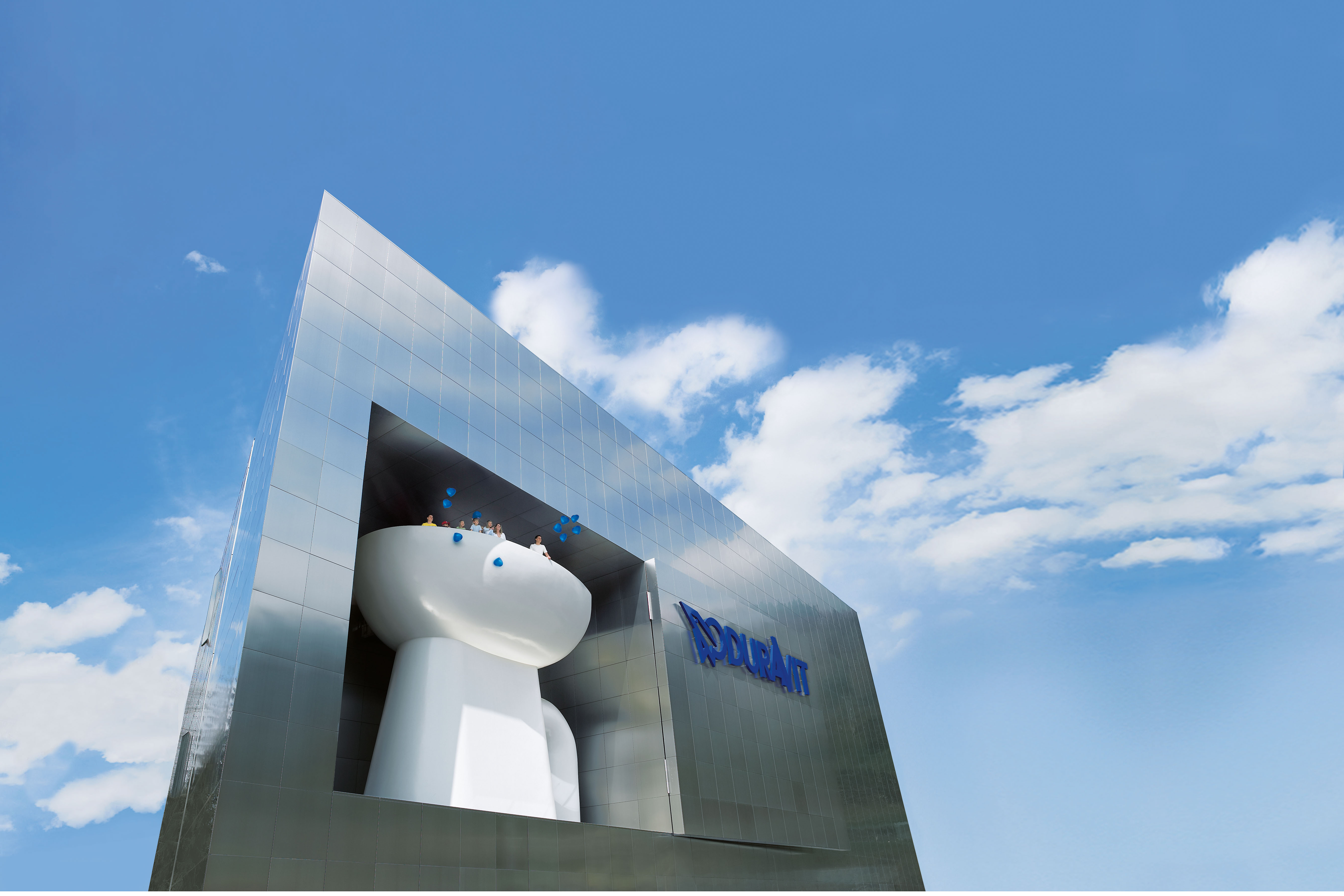
Reduced Water Consumption in Manufacturing
To reduce water consumption, our facility in Hornberg already uses 60 percent recycled water – more than 40.000m³ per year. The proportion of fresh water to recycled water is being constantly reduced. We are also strongly promoting water recycling at other sites, partly within manufacturing, partly for irrigating the green spaces around the buildings.
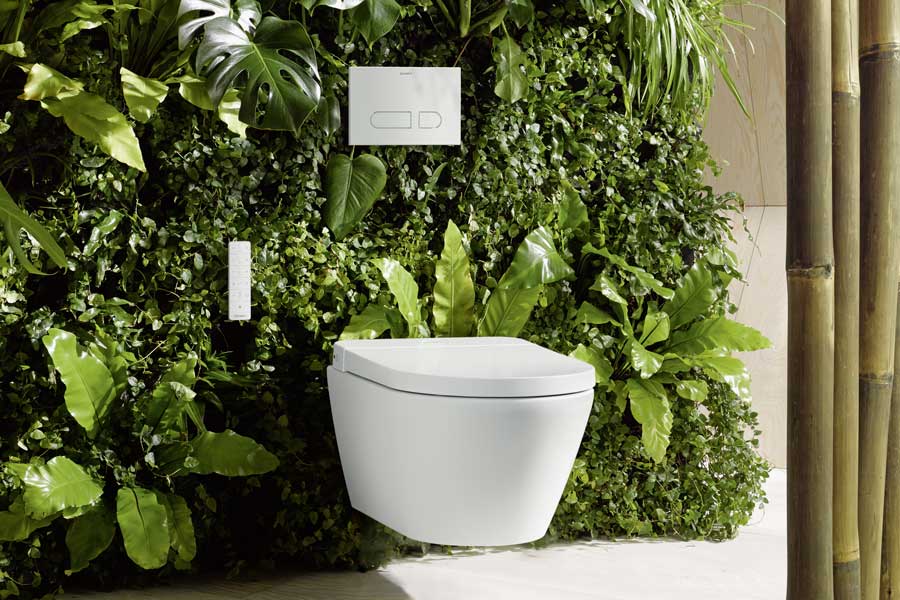
Product-Specific, Responsible Handling of Water
We are continually optimizing our products so that they can conserve resources during use. For example, the use of water-saving buttons saved 290 million m³ of fresh water in Europe over the last 10 years. We already optimized the flush mechanism in this regard 15 years ago. Additionally, the Unified Water Label (UWL) provides a transparent classification of our products’ water consumption for the end consumer.

Climate
Climate Protection Measures
When it comes to ceramic production, Duravit doesn’t just rely on one technology to reduce CO₂ emissions during the firing process. Instead, we are preparing for climate-neutral manufacturing through a wide range of measures.
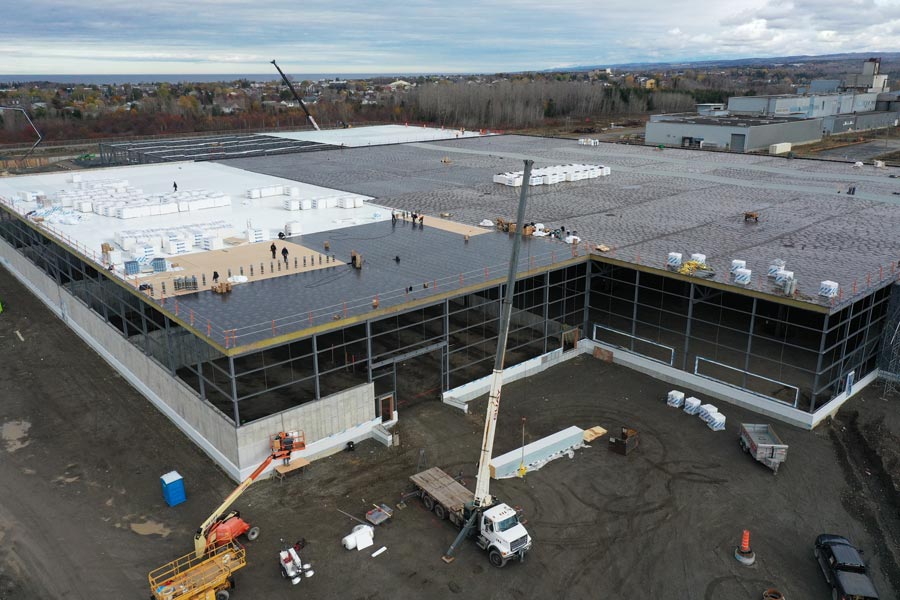
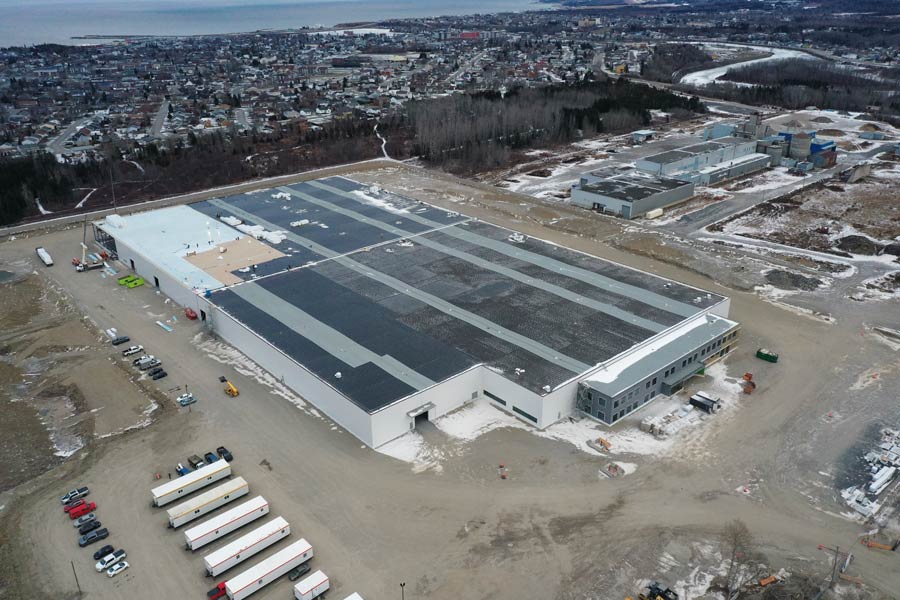
Carbon-Neutral Manufacturing in Canada
“Duravit goes green” is an initiative for a sustainable, automated manufacturing process to enable climate-neutral manufacturing. July 2023 will see the start of construction of a building that will cover an area of 35,000m², which will be powered by 99.6 percent green electricity. New technologies, which are scheduled to go live in 2025, will reduce emissions from manufacturing to zero.
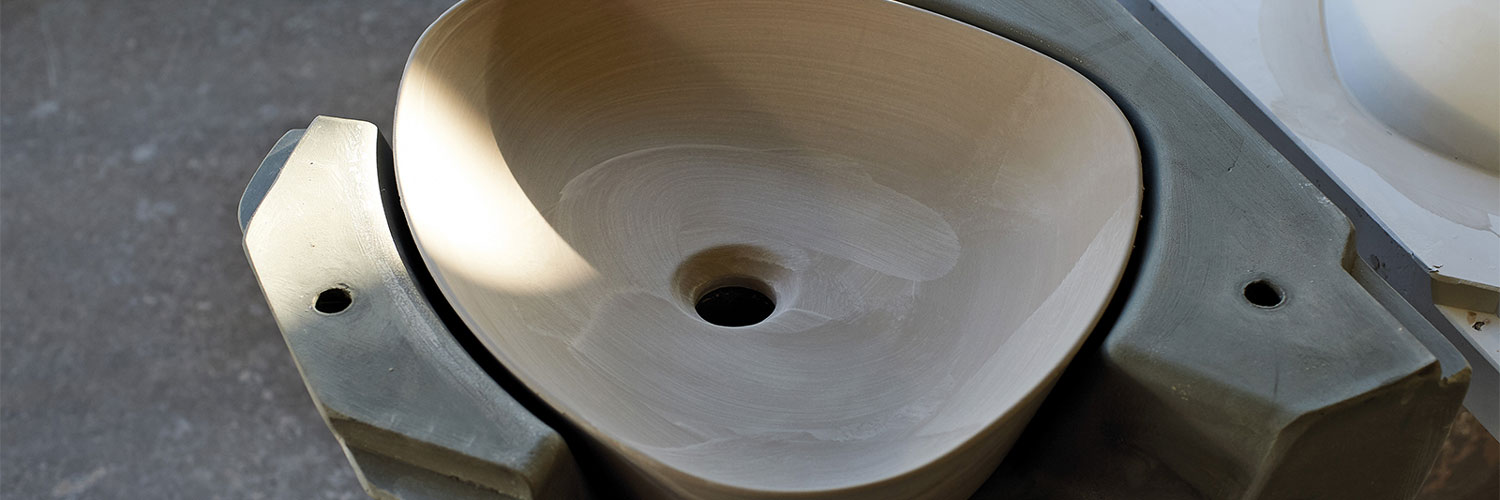
Resources
Responsible Consumption and Production
As a complete bathroom provider, it is our duty to treat resources with respect and supply products that are especially long-lasting and sustainable. Our quality promise implies a lifetime product warranty. To achieve our goals, we rely on new technologies, sustainable materials, and environmentally friendly logistics.
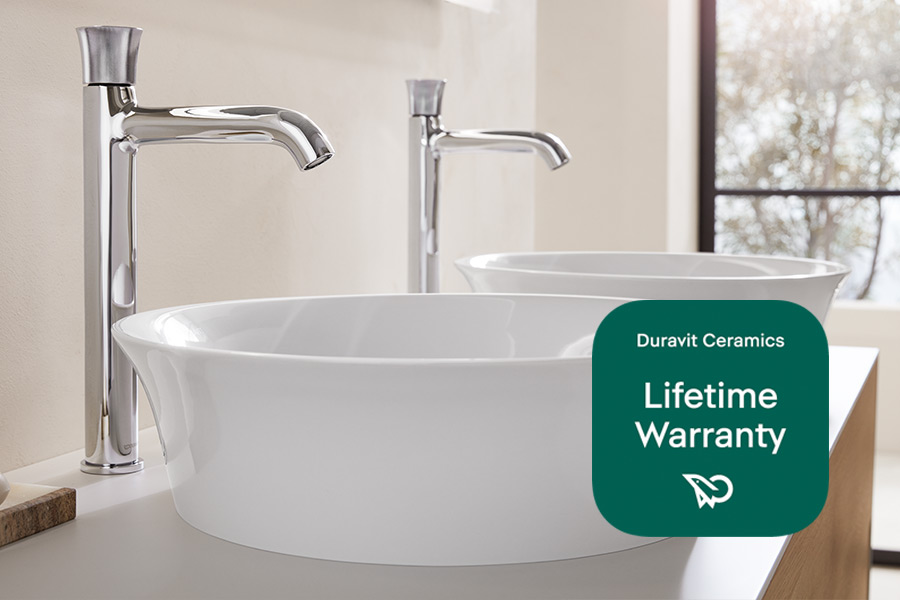
Lifetime Warranty on Ceramics
We are so convinced of the quality of our products that we are offering a lifetime warranty on many ceramics. Duravit attaches great importance to the highest precision, sustainability and quality in the development and manufacture of its ceramic products.
Responsible Consumption and Production
To ensure a sustainable product portfolio, we work with PEFC-certified wood or innovative, newly developed materials such as DuroCast Nature, the first recyclable mineral cast material. In this respect, products such as Sustano follow a life-cycle principle in which recycled materials are used to manufacture new shower trays.
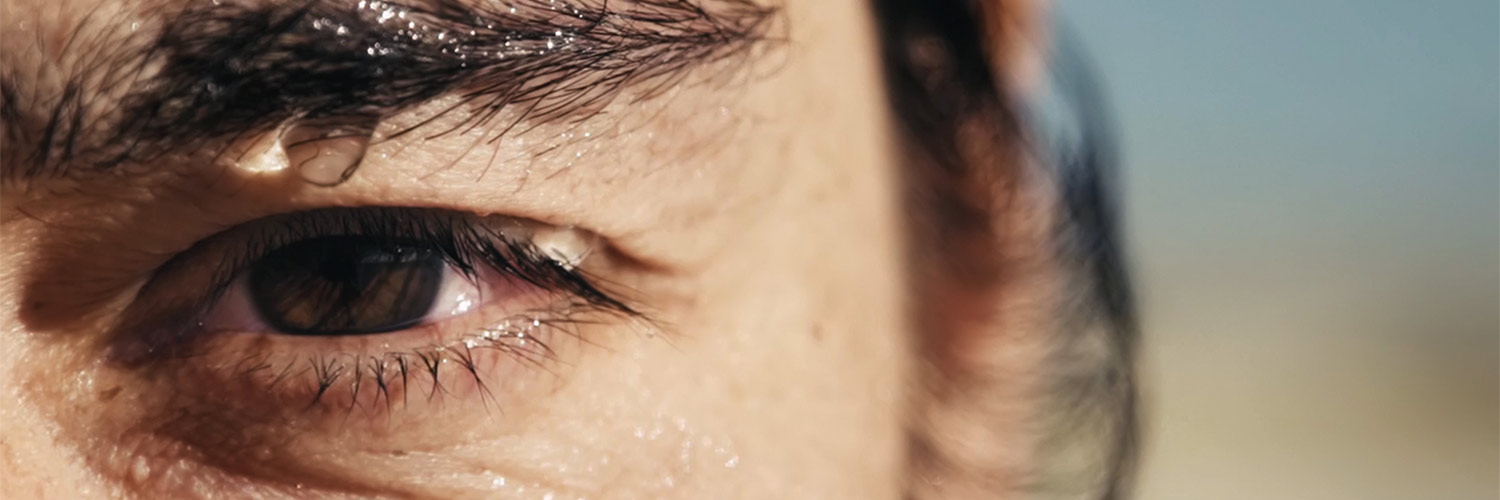
People
Social Commitment and Employee Satisfaction
We are mindful of our responsibility for the environment, our employees, and future generations. Social sustainability represents an integral element of our sustainability strategy and is aimed in particular at our employees and their well-being.
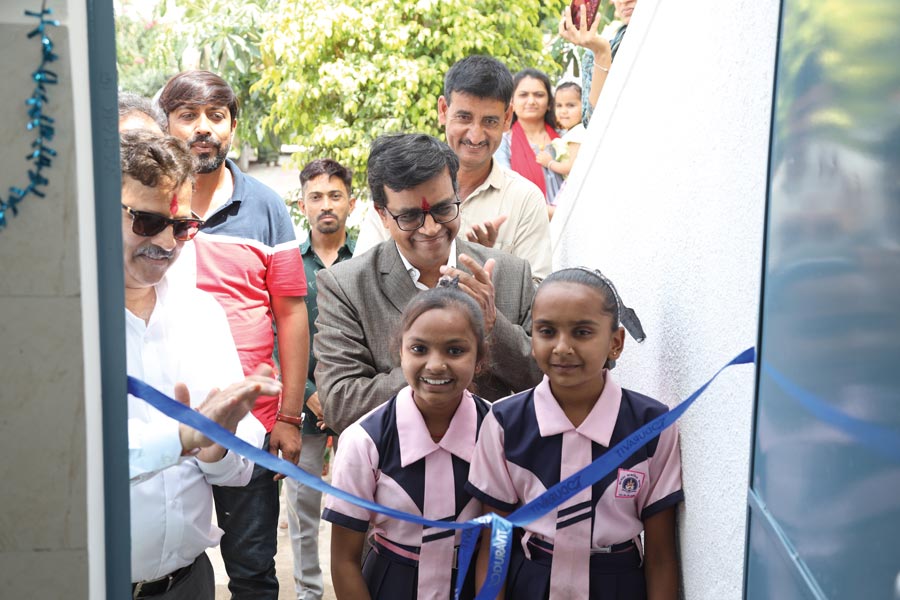
Clean Water & Sanitary Facilities for Indian Schools
Duravit supports the objectives of the World Toilet Day campaign established by United Nations Water. We have made a start in India as part of our CSR program. In recent years, we have renovated or converted the toilet facilities at nine schools in the Gujarat region. By doing so, we have given around 3,200 children access to hygienic sanitary facilities.
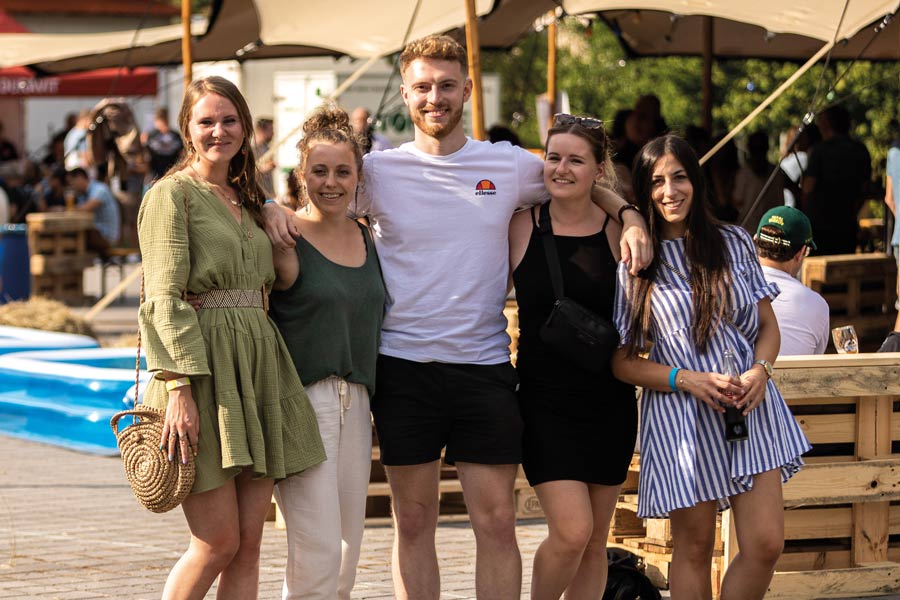
Wellbeing and Safety as a Basic Framework
We take safety in the workplace, compliance with human rights, and the long-lasting preservation of the physical and mental health of all employees very seriously. The well-being of our most important resource, our employees, is our top priority. It is just as important that all employees are involved in the implementation of our ambitious sustainability targets.
Certification
Through its participation in recognised testing and certification systems and membership of relevant associations Duravit plays a pioneering role in the industry.

